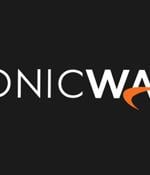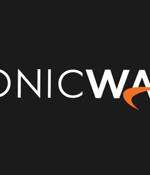Security News

Fog and Akira ransomware operators have increased their exploitation efforts of CVE-2024-40766, a critical access control flaw that allows unauthorized access to resources on the SSL VPN feature...

The US Cybersecurity and Infrastructure Security Agency (CISA) has added CVE-2024-40766 – a recently fixed improper access control vulnerability affecting SonicWall’s firewalls – to its Known...

Ransomware affiliates exploit a critical security vulnerability in SonicWall SonicOS firewall devices to breach victims' networks. [...]

SonicWall has revealed that a recently patched critical security flaw impacting SonicOS may have come under active exploitation, making it essential that users apply the patches as soon as...

SonicWall is warning that a recently fixed access control flaw tracked as CVE-2024-40766 in SonicOS is now "potentially" exploited in attacks, urging admins to apply patches as soon as possible. [...]

Here’s an overview of some of last week’s most interesting news, articles, interviews and videos: SonicWall patches critical flaw affecting its firewalls (CVE-2024-40766) SonicWall has patched a...

SonicWall has patched a critical vulnerability (CVE-2024-40766) in its next-gen firewalls that could allow remote attackers unauthorized access to resources and, in specific conditions, to crash...

SonicWall's SonicOS is vulnerable to a critical access control flaw that could allow attackers to gain access unauthorized access to resources or cause the firewall to crash. [...]

SonicWall has released security updates to address a critical flaw impacting its firewalls that, if successfully exploited, could grant malicious actors unauthorized access to the devices. The...

More than 178,000 SonicWall firewalls are still vulnerable to years-old vulnerabilities, an infosec reseacher claims. "SSD Labs previously stated that in both cases, cybercrims are"tasked with exploiting a stack overflow vulnerability to cause the DoS - remotely carried out by sending a malicious HTTP request.